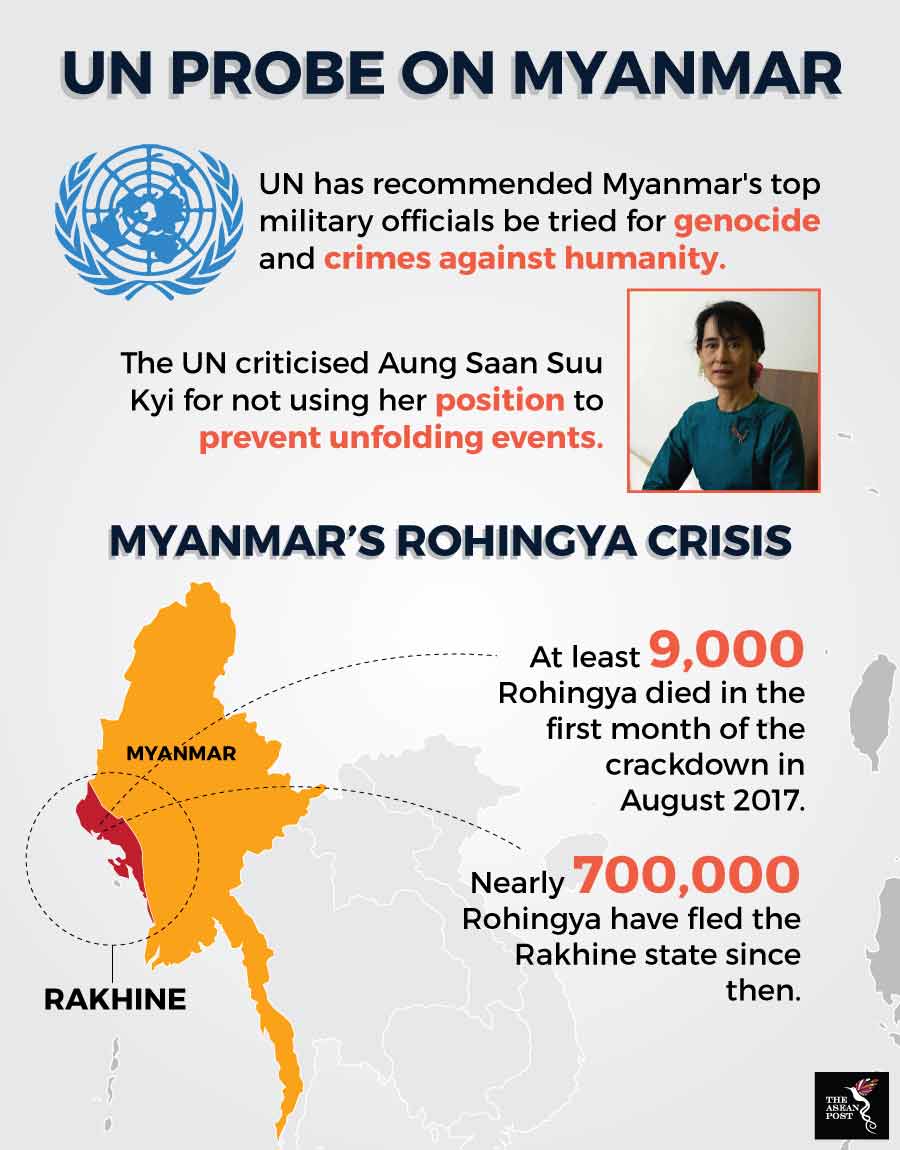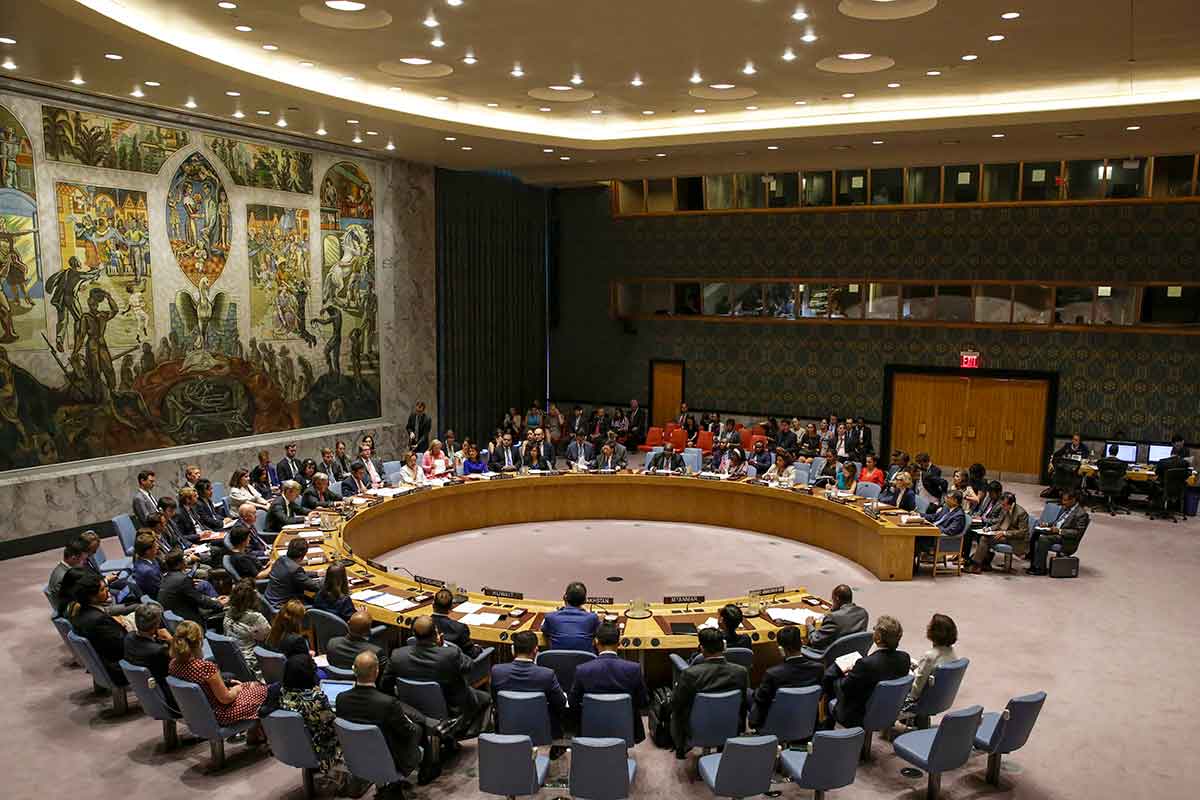For the first time, the United Nations (UN) have officially called for top Myanmar military officials to “be investigated and prosecuted” for genocide of the Rohingya people in the northern Rakhine state as well as for crimes against humanity and war crimes under international law.
This call to action comes after a fact-finding mission carried out by the United Nations Human Rights Council (UNHCR) revealed the patterns of gross human rights violations and abuses committed in Kachin, Rakhine and Shan States. The crimes committed by the military in Myanmar has been described as being “undoubtedly the gravest crimes under international law.”
The Rohingya crisis began in August last year, after a small group of Arakan Rohingya Salvation Army (ARSA) militants attacked a police post, killing 12 members of Myanmar’s security forces. As a result of this, the Myanmar military went on a massive crackdown targeting the Rohingya which led to nearly 700,000 Rohingya having to flee over the border to neighbouring Bangladesh.
The damning report revealed that crimes against humanity carried out by the Myanmar armed forces – also known as the Tatmadaw – were not just against the Rohingya in Rakhine State, but also in Kachin and Shan where ethnic conflict is also ongoing.
“The crimes against humanity committed in Kachin, Shan and Rakhine States include murder; imprisonment; enforced disappearance; torture; rape, sexual slavery and other forms of sexual violence; persecution and enslavement,” said the UN report.
The report also revealed the disturbing details of the crimes against humanity done by the Tatmadaw and listed the names of six senior military figures, including the commander-in-chief of Myanmar's armed forces and his deputy responsible for such crimes.
It documents mass killings in a number of villages, where “in some cases hundreds of people died.” In the village of Min Gyi, boys and men were allegedly separated and killed, while the women were taken to nearby houses to be gang-raped, then murdered or injured.

Source: Various
Genocide
What was stark about the report was the UN explicitly saying that the crimes against humanity perpetrated by the Tatmadaw in the Rakhine state were of “genocidal intent”. According to the UN, genocide occurs when a person commits a prohibited act with the intent to destroy, in whole or in part, a national, ethnical, racial, or religious group. The report outlines that the treatment received by the Rohingya from Myanmar security forces includes conduct which amounts to four of the five defined prohibited acts – killing, causing serious bodily or mental harm, inflicting conditions of life calculated to bring about the physical destruction of the group in whole or in part, and imposing measures intending to prevent births.
The report also calls out state councillor and former Nobel Prize winner Aung San Suu Kyi. The UN report stated that Suu Kyi “has not used her de facto position as Head of Government, nor her moral authority, to stem or prevent the unfolding events, or seek alternative avenues to meet a responsibility to protect the civilian population.”
Others have argued that the blame does not rest entirely on Suu Kyi as she would be powerless to keep the military accountable. However, despite her inability to control the military, her denial and silence over the Rohingya crisis is telling of her attitude on the crisis. She also refused to cooperate with the UN investigations.
The ongoing crisis in Myanmar have long been criticised by the international community. However, major countries with international clout aside from the US have been relatively silent. While the US has imposed sanctions on Myanmar, powerful countries such as the United Kingdom (UK), China and Russia have remained relatively silent. The UK in particular has been fiercely rebuked for its silence on the matter. The country is a founding member of the International Criminal Court (ICC) but has kept mum on referring Myanmar to the ICC.
The investigators who prepared the report have called for the UN Security Council to impose an arms embargo on Myanmar and to subject its officials to targeted sanctions. They also recommend the setting up of an ad hoc tribunal to try suspects or refer them to the ICC.
Meanwhile, the Myanmar government has rejected the findings of the mission. The intransigence of the government there is expected, and it is unlikely that they would change anytime soon. If anything should change, it is the attitude of the international community, particularly those with influence. Any failure to act decisively would be a miscarriage of justice.
